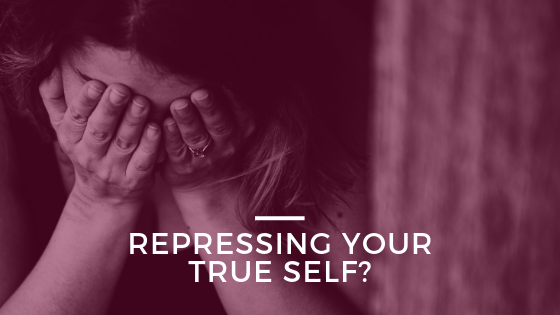Let’s say, for example, when you were a child, your father wanted quiet in the house. You were always told to ‘be quiet’, and knew you would be punished for not doing what you were told.
You learned to appease your father by being quiet, even though you may have been an extroverted child who loved making noise. In this example, the extroverted, noise-loving child learns to repress a key quality of who they are, and in doing so, adapts themselves to a character that is not their genuine authentic self! This repeated behaviour creates associated neural pathways that become their default way of viewing their world.
Do you believe that this conditioning stops in childhood? No! It continues into their adult life, and they will forever suffer the internal conflict between the desire to be noisy and extroverted and the fear of punishment when they are. This will occur even though they are an adult and their father may no longer be present to punish them for being noisy.
Let’s now bring the child’s mother into this conditioning equation …
Imagine our extroverted, noise-loving child, repressing their instinctual behaviour and being rewarded by their mum with a treat for being a ‘good’ child and obeying their father.
What do you think happens?
The child now associates being good with repressing their true qualities! Would you want this to be your child — or you? Without knowing it, that child has now created neural pathways aligned to the belief that ‘quiet equals good’, and so repressing their true self is, by default, also good.
Aligning this with my analogy, the stem cell (the child) differentiates into an unhealthy cell (the adult repressing their true self) due to an unhealthy biofield. They cannot be themselves otherwise they will be punished!
How long can your true self stay repressed?
